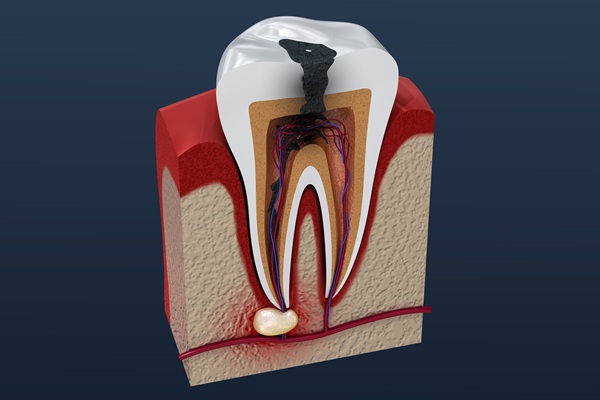Can Periodontal Disease Be Reversed?

Do you think you might have the beginnings of periodontal disease? Wondering what to do about it if you do? The sooner you address any dental problems by making an appointment with an experienced dentist, the better chances you are going to have of reversing those dental problems.
Ready to find out more now about periodontal disease?
Periodontal disease is another name for gum disease, of which both refer to a bacterial infection that takes place in the gum tissue. If the infection is in its beginning stages, then it is called gingivitis. If the infection is in its end stages, then it is called periodontitis. The reason why someone would be diagnosed with periodontal disease is that they have too much bacteria in the mouth. When bacteria can stay in the mouth for long periods of time, it will eventually lead to an infection.
Keeping bacteria under control
The best way anyone can keep the bacteria in his or her mouth under control is to brush their teeth at least twice a day and floss their teeth at least once a day. Regular dental care allows for the removal of bacteria. When brushing and flossing are not done on a regular basis, then bacteria will begin to grow and even thrive, which is not supportive of a healthy mouth.
Can you reverse gum disease?
Yes, gum disease can be reversed. The way for dental patients to start reversing any gum disease affects they may be experiencing is for them to start taking proper care of their teeth. While brushing twice a day and flossing at least once a day is the standard recommendations, some people may need to brush and floss more often. A professional dentist can offer patients recommendations on exactly how often they should brush and floss their teeth, as well as any additional dental care recommendations they deem fit to provide.
Can you reverse early gum disease?
When gum disease is caught early, it is easiest to treat. Properly brushing and flossing on a daily basis can help to reverse early gum disease in as little as 30 days. Using an antimicrobial mouthwash can also be beneficial.
Can you reverse advanced gum disease?
While it is possible to reverse advanced gum disease, the patient is going to need to undergo a few intricate treatments. The process will begin with the dentist removing all of the tartar and plaque below the gum line. If additional procedures are necessary, like grafting, the dentist can also perform these procedures. After the infection is removed from the patient's mouth, they will need to maintain their new, gum disease free mouth with excellent oral hygiene steps.
Have periodontal disease?
If you think you have periodontal disease, then you need to make an appointment as soon as possible for treatment. If you do not seek treatment with a professional dentist, the problem will only continue to get worse. Once someone is diagnosed with periodontitis, he or she may have issues keeping his or her teeth. If you want to keep your natural teeth, then you will need not to have any gum problems you are currently experiencing.
Signs of periodontal disease include receding gums, loose teeth, bad breath, bleeding gums when brushing teeth and any abscesses that may be present.
Our office and trained staff are ready to answer any additional questions you may have. We can help guide you in making the best choices for your teeth and oral health. Contact us today and let us take each step with you in attaining the oral health you have been wanting!
Request an appointment in our Lincroft dentist office here: https://lincroftvillagedental.com.
Check out what others are saying about our dental services on Yelp: Periodontal Disease in Lincroft, NJ.
Recent Posts
Dental implants have become a popular method for dental restoration and replacement. They are offering people a chance to chew naturally and smile confidently again, and with the help of periodontist, a person can achieve this!While a lot of people do visit their dentists for dental implants, it can be helpful to visit a periodontist…
Red, inflamed or swollen gums are often the sign of gingivitis, the first stage of periodontal disease or worse still, periodontitis. Plaque is the most common cause of the condition, but there are several others that can cause gum infection.The following are some of the common ways to get gum disease:Gum disease is usually caused…
Periodontal disease is an infection of the gum tissues and the jawbone supporting the teeth. It is a prevalent oral condition that does not heal on its own without professional intervention. The condition, which starts as minor inflammation of the gums, can cause loose teeth and eventual tooth loss if left untreated.Gum disease is the…
A periodontist has one primary goal — to save patients’ permanent teeth. If someone needs a tooth extracted, this dental professional has the advanced training to replace it. Mainly, they offer dental implants to patients who are good candidates. While it might sound odd that a periodontist pulls teeth, it is for the health of…


